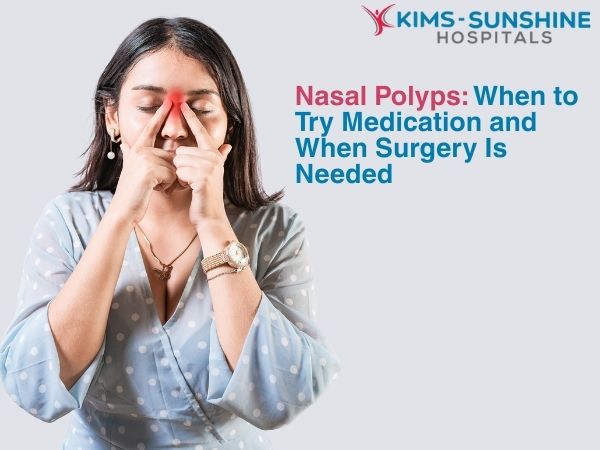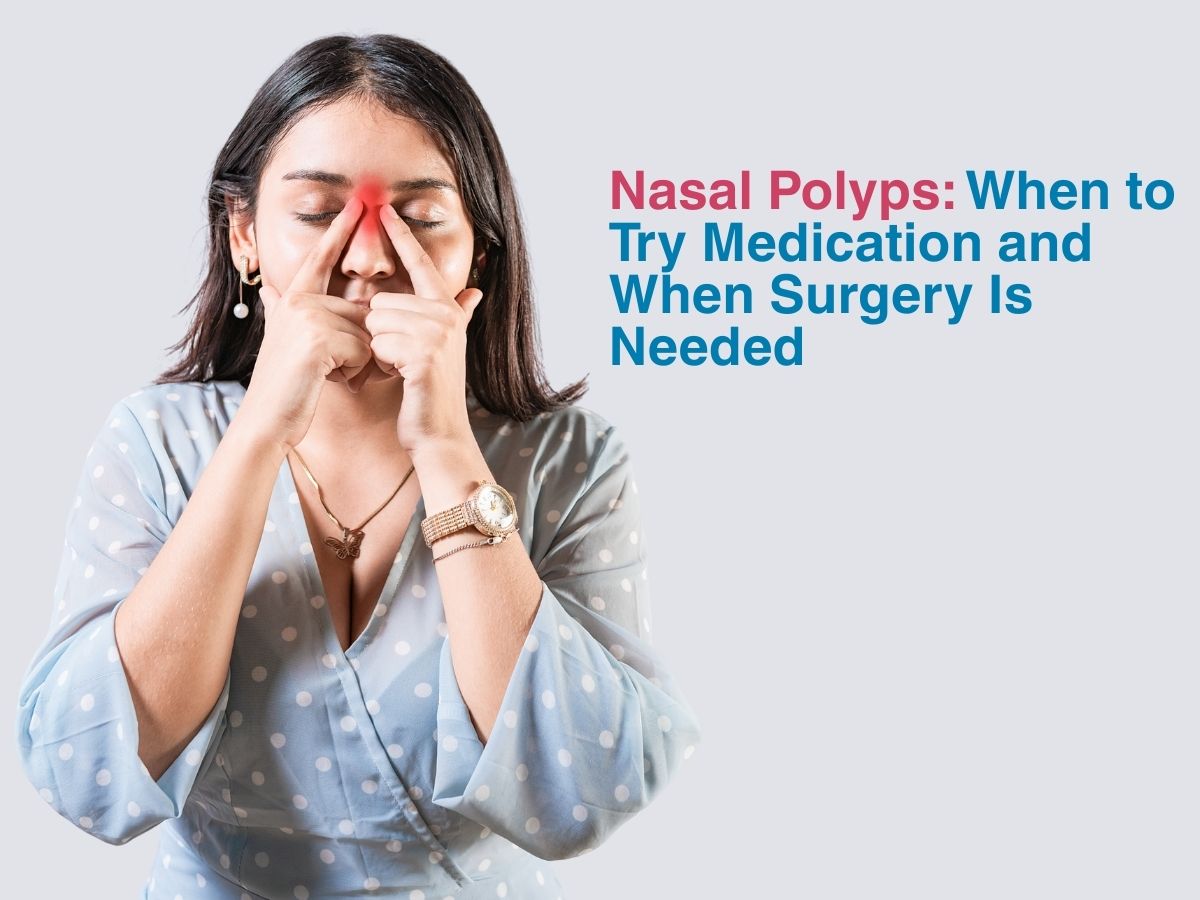
Nasal Polyps: When to Try Medication and When Surgery Is Needed
Nasal polyps are small, fleshy, benign growths that occur in the nasal passages. If there are too many of them, it can impact your sense of taste and smell. They are benign and are not painful either, but this doesn’t mean that they need to be left alone – especially if there is an increased chance of suffering from infections or not being able to breathe freely. They affect nearly 4% of the Indian population, with more men reporting this condition than women. Nasal polyps are normally formed when there is chronic inflammation in the sinus passages of the skull and this immune activity lasts for more than 3 months at a time. You may not even know you have nasal polyps, until you have other issues like not being able to breathe, tooth aches or if you are not able to taste or smell suddenly or if you have a bad headache that refuses to go away.
When To Treat Nasal Polyps With Medication?
Nasal polyps are normally tiny and don’t cause issues for most people but if they grow too large, then you may have frequent asthma attacks, sinusitis, may have sleep apnoea or may not be able to breathe properly at all. Though research has shown us that inflammation is the root cause for polyp formation, we don’t know why it only affects some individuals while others never have any issues. Polyps can be treated with steroid nasal sprays, oral steroid pills, antibiotics or biologics, as needed.
Best Steroid Nasal Spray For Nasal Polyps
Corticosteroid sprays that can be useful contain fluticasone, mometasone or triamcinolone as the active ingredient. Dosage needs to be determined and then the right inhaler can be bought for regular use. But, you may have to deal with side effects like a sore throat, cough or nosebleeds at times. So, talk to your doctor before you begin treatment.
Signs You Need Surgery For Nasal Polyps
If you have large polyps and if medication or nasal sprays don’t seem to work at all, then surgery may be the only option left to try. A nasal endoscope is used to visualise the nasal passages while scissors or snares are used to remove the polyps (if you get a polypectomy). A balloon sinuplasty can also be suggested, where a balloon is inflated in your nasal passage, to help widen them. Other surgery may be recommended if polyps, diseased bone and tissue also need to be removed.
Conclusion
Nasal polyps can interfere with your sense of smell or taste if present and they may not allow you to breathe freely, if they are large in size. Plus, surgery can only help you get rid of the polyps currently present in your sinuses, but CANNOT prevent the formation of new ones in the future. This is why taking good care post surgery is very crucial- and this can be in the form of taking medication, using sprays or rinses and a humidifier at home, so that you don’t have dry nasal passages. Good hygiene needs to be a priority, now and always.







